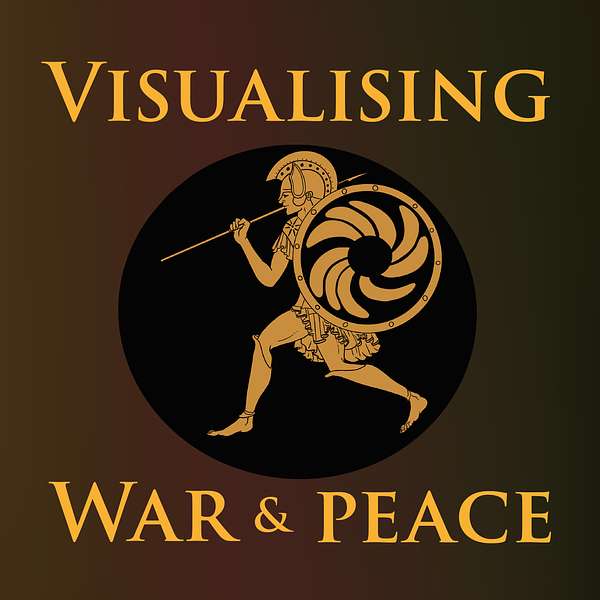
Visualising War and Peace
How do war stories work? And what do they do to us? Join University of St Andrews historian Alice König and colleagues as they explore how war and peace get presented in art, text, film and music. With the help of expert guests, they unpick conflict stories from all sorts of different periods and places. And they ask how the tales we tell and the pictures we paint of peace and war influence us as individuals and shape the societies we live in.
Visualising War and Peace
War, knowledge and narrative from Napoleon to today
In this episode, Alice and Nicolas interview Prof. Anders Engberg-Pedersen, Professor of Comparative Literature at the University of Southern Denmark. Anders is the author of Empire of Chance, published in 2015, which argues that the Napoleonic Wars not only changed the nature of warfare but also revolutionised people's understanding of chance, contingency and probability, inspiring a new discourse of knowledge. He has also edited volumes on Literature and Cartography, exploring how different kinds of texts visualise space, and Visualizing War: Emotions, Technologies, Communities, which explores the emotional language of images of war, and how they build emotional communities as well as impacting on individuals' emotions.
In the podcast, we talk about the impact which war has on culture and society, as well as the impact which culture and society have on war. Anders explains that the scale of the Napoleonic Wars resulted in a shift in how comprehensible people thought war was, with a move from universal principles, geometric representations and scientific discussions to an emphasis on chaos, uncertainty and the fog of war. This was felt in literature as well as military theory, with authors like Balzac, Stendhal and Tolstoy reflecting on the difficulties of describing war and opting to narrate individual perspectives alongside - or instead of - sweeping panoramas. Anders also discusses the origins of wargaming in the Napoleonic period, and the ways in which wargaming ever since has trained people's emotions as well as their physical and cognitive skills. Along the way, he reflects on the complex emotional impact of many different visual images of war, and the ways in which militaries often co-opt the language of art to talk about war as a creative endeavour, full of design. War shapes knowledge and narrative forms, and they in turn shape how war is visualised and pursued.
Among other questions, we asked Anders:
- How and why did concepts of war shift in the Napoleonic era?
- In what sense did war become a 'problem of knowledge', with uncertainty outweighing certainty?
- How did these changes in war itself and the way it was visualised affect how people wrote about it and trends in representation? What new 'poetics of war' emerged? And what media came to dominate?
- In what sense do representations of war like maps and virtual reality games act simulate war itself, enabling readers to immerse themselves rather than just visualising from afar?
- What emotional impact do representations of war in different media have on individuals and communities? And to what use are they put?
Anders' insights into the complex relationship between war, knowledge and narrative touch on issues that go right to the heart of the Visualising War project. We hope you enjoy the episode!
For a version of our podcast with close captions, please use this link. For more information about individuals and their projects, please have a look on the University of St Andrews Visualising War website.
Music composed by Jonathan Young
Sound mixing by Zofia Guertin